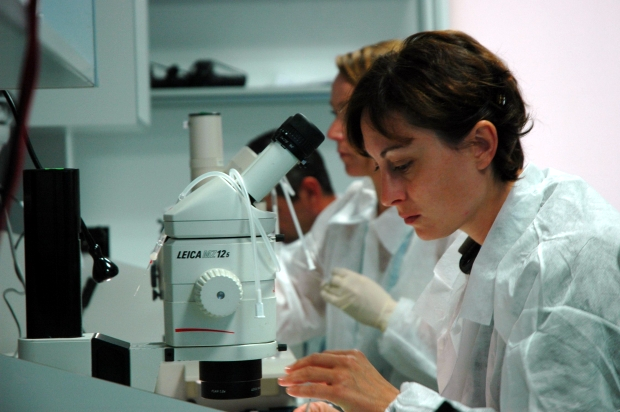April 2005 - Researchers from the Universities of Edinburgh and Southampton have begun a new study into the effects of a mother's diet in pregnancy upon unborn babies and their future health. The research team will seek answers to the links between diet and health by carrying out further studies in a group of almost 1,000 men and women born in Motherwell, Scotland, in the late 1960s. The Chief Scientist Office and the Medical Research Council fund the project.
This latest research will look at the effects of an ' Atkins-type' high meat, low carbohydrate diet in late pregnancy on how the offspring respond to a mental stress test. Men and women born in the 1ate 1960s, whose mothers' food intakes in pregnancy were recorded, will take part in the stress test.
The 'Motherwell babies' have been chosen for the project because the diets followed by their mothers during pregnancy were carefully recorded by local obstetrician Dr Kerr Grieve, who believed that many of the problems suffered by mothers and babies were due to an unhealthy diet. He designed a diet for pregnant women that would provide 'body building' foods for the healthy growth of babies.
957 men and women, born in 1967 and 1968, have already taken part in previous studies, to check for raised blood pressure and high blood sugar levels. This research found that the mothers with less balanced diets had babies who grew up to have higher blood pressure, altered blood sugar levels and higher amounts of stress hormones: all factors which can predispose an individual to diabetes and coronary heart disease.
Dr Rebecca Reynolds of the University of Edinburgh's Medical Sciences division, who is leading the study, said the 'Motherwell babies' would prove invaluable in this latest research. She explained: "We now know that growth from the very earliest days in the womb affects health in adulthood, particularly the risks of heart disease, diabetes and osteoporosis. If the mother eats an unbalanced diet this can trigger her body to produce increased amounts of stress hormones, which can then have long term effects on the stress responses of her unborn baby. These stress responses could be an important part of the link between development in the womb and health in later life."
Continue Reading Below ↓↓↓
Dr Keith Godfrey, of the University of Southampton's School of Medicine and a member of the study team, commented: " During pregnancy, the developing baby is wholly dependent upon the mother for an adequate and appropriate supply of nutrients. Many young women today eat unbalanced diets, such as the Atkins diet, and this research in Motherwell will help us to identify if such diets have long-term effects on the health of the baby. This is an important part of research to determine how best to improve a mother's nutrition during pregnancy - this could have lifelong benefits for the health of the baby."
Source: University of Edinburgh










